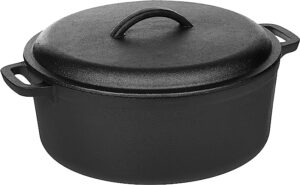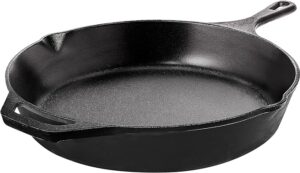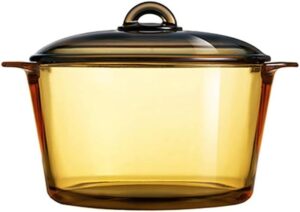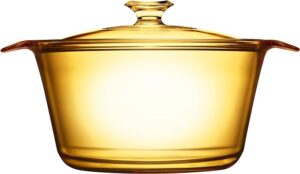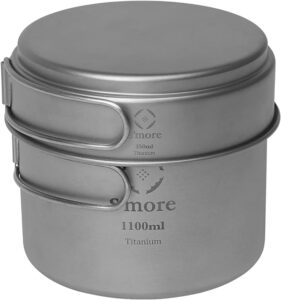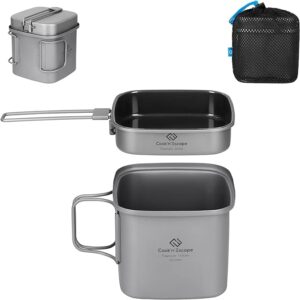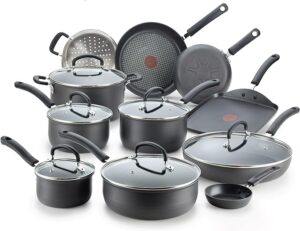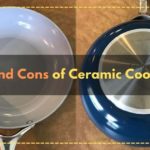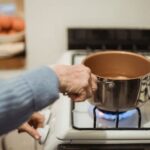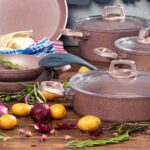4 Non-toxic cookware that you should buy for cooking. (part 1)
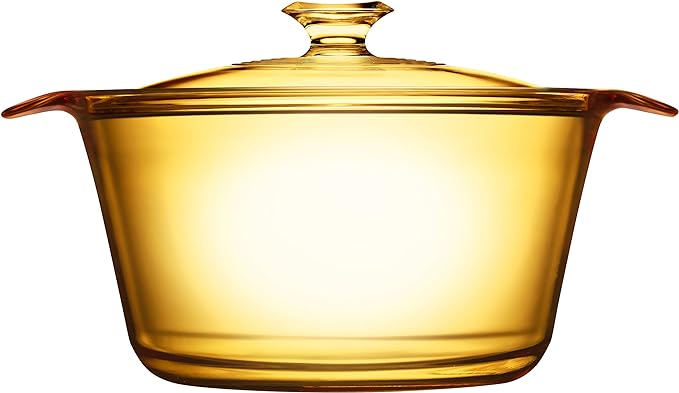
In today’s health-conscious world, choosing the right cookware is essential for ensuring that the meals we prepare are as wholesome as possible. Non-toxic cookware is a popular choice for health-conscious home cooks, and in this two-part series, we’ll explore four outstanding options. From the timeless appeal of cast iron to the modern innovations of titanium, we’ve got you covered. Join us in this first part as we delve into the advantages of Cast Iron Cookware, Glass Cookware, Titanium Cookware, and Hard Anodized Aluminium Cookware, discussing their merits and simple maintenance tips for a healthier cooking experience.
Cast Iron Cookware:
When it comes to non-toxic cookware, classic cast iron is a time-honored choice for home cooks seeking a healthier approach to their culinary creations. This durable and robust cookware is celebrated for its ability to retain and distribute heat evenly, making it ideal for slow-cooking, frying, and baking. Cast iron doesn’t leach harmful chemicals into your food, providing a non-toxic cooking experience. In fact, regular use of cast iron cookware can even boost your iron intake, making it not only safe but also potentially beneficial for your health.
Read more about Cast Iron Cookware
Maintenance Tip: To keep your cast iron cookware in prime non-toxic condition, remember to season it regularly. Seasoning involves coating the surface with a thin layer of cooking oil and heating it to create a natural, non-stick layer. This process also protects the cookware from rusting. Cleaning cast iron should be done gently with minimal soap and scrubbing to avoid stripping the seasoning. Dry it thoroughly to prevent rust, and remember never to store food in cast iron to maintain its non-toxic properties.
Glass Cookware:
Glass cookware has emerged as a shining star in the realm of non-toxic cooking. It’s made from natural materials, primarily sand, and doesn’t contain the harmful chemicals found in many non-stick coatings. Cooking with glass ensures that no unwanted substances leach into your dishes, providing a healthier option for preparing your meals. It’s also a versatile choice, as it can go from the oven to the table for serving, making it an excellent option for both baking and roasting. The transparency of glass allows you to monitor your food as it cooks, helping you avoid overcooking and ensuring your meals come out perfect.
Maintenance Tip: To maintain your glass cookware’s non-toxic qualities, avoid exposing it to sudden temperature changes, as extreme variations can cause the glass to shatter. When washing, prefer hand washing over using a dishwasher to prevent clouding and pitting on the surface. Scrub gently to avoid scratching. Glass cookware can be prone to stains, so it’s a good practice to soak it after use to facilitate easier cleaning.
Order Now:
Titanium Cookware:
When it comes to non-toxic cookware, titanium stands out as a top choice. This material is celebrated for its remarkable strength-to-weight ratio, making it both robust and lightweight. What’s especially appealing is its resistance to corrosion, meaning it won’t react with your food even under high heat. The non-stick coatings used in titanium cookware are specially designed to be free from PFOA, PTFE, and other harmful chemicals. This ensures that you can prepare your meals without worrying about potentially hazardous substances leaching into your food. Choosing titanium cookware guarantees that your culinary creations are as pure as possible.
Read more about Titanium Cookware
Maintenance Tip:To preserve the non-toxic properties of your titanium cookware, it’s crucial to use the right utensils. Avoid metal implements that can scratch the non-stick surface, opting for silicone or wooden tools instead. For cleaning, gentle is the keyword. Hand washing with a mild detergent using a soft sponge is the best approach. Steer clear of harsh dishwashers and abrasive cleaning pads, which can compromise the non-stick coating and its non-toxic characteristics.
Hard Anodized Aluminum Cookware:
Hard anodized aluminum cookware is another excellent choice for health-conscious home chefs. What sets it apart is the process of anodization, which transforms regular aluminum into a non-porous, highly durable cooking surface. This surface resists sticking, allowing you to cook with significantly less oil, thus promoting healthier meals. Additionally, hard anodized aluminum cookware doesn’t react with acidic ingredients like tomatoes, which is a common concern with some other types of cookware. This not only enhances the flavor of your dishes but also ensures they remain non-toxic.
Maintenance Tip:To prolong the non-toxic attributes of hard anodized aluminum cookware, adopting a few best practices is important. Stick to hand washing rather than using the dishwasher. Use a soft sponge and mild soap to clean, avoiding abrasive scrubbers that could damage the non-stick surface. When cooking, refrain from using extremely high heat, as this can impact the cookware’s longevity and potentially compromise its non-toxic nature.
Order Now:
In this exploration of non-toxic cookware, we’ve uncovered a selection of safer alternatives for your kitchen. Cast Iron, Titanium, Hard Anodized Aluminium, and Glass Cookware each bring unique advantages while ensuring that you can prepare your meals without the worry of harmful substances leaching into your food. From the enduring tradition of cast iron to the modern innovations in titanium and hard anodized aluminum, there’s a non-toxic cookware option to suit every chef’s preferences. Choosing these cookware types not only prioritizes your health but also enhances your culinary adventures.
Remember, maintaining the non-toxic qualities of these cookware items is essential to ensure their longevity and safety. So, whether you’re searing, simmering, or sautéing, you can cook with confidence, knowing you’re embracing healthier cooking practices.
Stay tuned for the upcoming parts of this series as we unveil more non-toxic cookware options and their respective merits. Your journey to a healthier kitchen continues with each installment.

